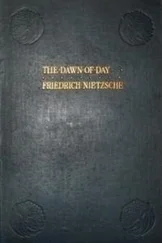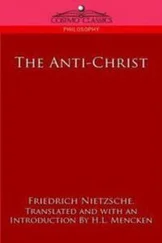Фридрих Ницше - The Birth of Tragedy
Здесь есть возможность читать онлайн «Фридрих Ницше - The Birth of Tragedy» — ознакомительный отрывок электронной книги совершенно бесплатно, а после прочтения отрывка купить полную версию. В некоторых случаях можно слушать аудио, скачать через торрент в формате fb2 и присутствует краткое содержание. Жанр: Философия, literature_19, foreign_antique, foreign_prose, на английском языке. Описание произведения, (предисловие) а так же отзывы посетителей доступны на портале библиотеки ЛибКат.
- Название:The Birth of Tragedy
- Автор:
- Жанр:
- Год:неизвестен
- ISBN:нет данных
- Рейтинг книги:3 / 5. Голосов: 1
-
Избранное:Добавить в избранное
- Отзывы:
-
Ваша оценка:
- 60
- 1
- 2
- 3
- 4
- 5
The Birth of Tragedy: краткое содержание, описание и аннотация
Предлагаем к чтению аннотацию, описание, краткое содержание или предисловие (зависит от того, что написал сам автор книги «The Birth of Tragedy»). Если вы не нашли необходимую информацию о книге — напишите в комментариях, мы постараемся отыскать её.
The Birth of Tragedy — читать онлайн ознакомительный отрывок
Ниже представлен текст книги, разбитый по страницам. Система сохранения места последней прочитанной страницы, позволяет с удобством читать онлайн бесплатно книгу «The Birth of Tragedy», без необходимости каждый раз заново искать на чём Вы остановились. Поставьте закладку, и сможете в любой момент перейти на страницу, на которой закончили чтение.
Интервал:
Закладка:
Friedrich Wilhelm Nietzsche
The Birth of Tragedy / or Hellenism and Pessimism
INTRODUCTION. 1 1 This Introduction by E. Förster-Nietzsche, which appears in the front of the first volume of Naumann's Pocket Edition of Nietzsche, has been translated and arranged by Mr. A. M. Ludovici.
Frederick Nietzsche was born at Röcken near Lützen, in the Prussian province of Saxony, on the 15th of October 1844, at 10 a.m. The day happened to be the anniversary of the birth of Frederick-William IV., then King of Prussia, and the peal of the local church-bells which was intended to celebrate this event, was, by a happy coincidence, just timed to greet my brother on his entrance into the world. In 1841, at the time when our father was tutor to the Altenburg Princesses, Theresa of Saxe-Altenburg, Elizabeth, Grand Duchess of Olden-burg, and Alexandra, Grand Duchess Constantine of Russia, he had had the honour of being presented to his witty and pious sovereign. The meeting seems to have impressed both parties very favourably; for, very shortly after it had taken place, our father received his living at Röcken "by supreme command." His joy may well be imagined, therefore, when a first son was born to him on his beloved and august patron's birthday, and at the christening ceremony he spoke as follows: – "Thou blessed month of October! – for many years the most decisive events in my life have occurred within thy thirty-one days, and now I celebrate the greatest and most glorious of them all by baptising my little boy! O blissful moment! O exquisite festival! O unspeakably holy duty! In the Lord's name I bless thee! – With all my heart I utter these words: Bring me this, my beloved child, that I may consecrate it unto the Lord. My son, Frederick William, thus shalt thou be named on earth, as a memento of my royal benefactor on whose birthday thou wast born!"
Our father was thirty-one years of age, and our mother not quite nineteen, when my brother was born. Our mother, who was the daughter of a clergyman, was good-looking and healthy, and was one of a very large family of sons and daughters. Our paternal grandparents, the Rev. Oehler and his wife, in Pobles, were typically healthy people. Strength, robustness, lively dispositions, and a cheerful outlook on life, were among the qualities which every one was pleased to observe in them. Our grandfather Oehler was a bright, clever man, and quite the old style of comfortable country parson, who thought it no sin to go hunting. He scarcely had a day's illness in his life, and would certainly not have met with his end as early as he did – that is to say, before his seventieth year – if his careless disregard of all caution, where his health was concerned, had not led to his catching a severe and fatal cold. In regard to our grand-mother Oehler, who died in her eighty-second year, all that can be said is, that if all German women were possessed of the health she enjoyed, the German nation would excel all others from the standpoint of vitality. She bore our grandfather eleven children; gave each of them the breast for nearly the whole of its first year, and reared them all It is said that the sight of these eleven children, at ages varying from nineteen years to one month, with their powerful build, rosy cheeks, beaming eyes, and wealth of curly locks, provoked the admiration of all visitors. Of course, despite their extraordinarily good health, the life of this family was not by any means all sunshine. Each of the children was very spirited, wilful, and obstinate, and it was therefore no simple matter to keep them in order. Moreover, though they always showed the utmost respect and most implicit obedience to their parents – even as middle-aged men and women – misunderstandings between themselves were of constant occurrence. Our Oehler grandparents were fairly well-to-do; for our grandmother hailed from a very old family, who had been extensive land-owners in the neighbourhood of Zeitz for centuries, and her father owned the baronial estate of Wehlitz and a magnificent seat near Zeitz in Pacht. When she married, her father gave her carriages and horses, a coachman, a cook, and a kitchenmaid, which for the wife of a German minister was then, and is still, something quite exceptional. As a result of the wars in the beginning of the nineteenth century, however, our great-grandfather lost the greater part of his property.
Our father's family was also in fairly comfortable circumstances, and likewise very large. Our grandfather Dr. Nietzsche (D.D. and Superintendent) married twice, and had in all twelve children, of whom three died young. Our grandfather on this side, whom I never knew, must certainly have been a distinguished, dignified, very learned and reserved man; his second wife – our beloved grandmother – was an active-minded, intelligent, and exceptionally good-natured woman. The whole of our father's family, which I only got to know when they were very advanced in years, were remarkable for their great power of self-control, their lively interest in intellectual matters, and a strong sense of family unity, which manifested itself both in their splendid readiness to help one another and in their very excellent relations with each other. Our father was the youngest son, and, thanks to his uncommonly lovable disposition, together with other gifts, which only tended to become more marked as he grew older, he was quite the favourite of the family. Blessed with a thoroughly sound constitution, as all averred who knew him at the convent-school in Rossleben, at the University, or later at the ducal court of Altenburg, he was tall and slender, possessed an undoubted gift for poetry and real musical talent, and was moreover a man of delicate sensibilities, full of consideration for his whole family, and distinguished in his manners.
My brother often refers to his Polish descent, and in later years he even instituted research-work with the view of establishing it, which met with partial success. I know nothing definite concerning these investigations, because a large number of valuable documents were unfortunately destroyed after his breakdown in Turin. The family tradition was that a certain Polish nobleman Nicki (pronounced Nietzky) had obtained the special favour of Augustus the Strong, King of Poland, and had received the rank of Earl from him. When, however, Stanislas Leszcysski the Pole became king, our supposed ancestor became involved in a conspiracy in favour of the Saxons and Protestants. He was sentenced to death; but, taking flight, according to the evidence of the documents, he was ultimately befriended by a certain Earl of Brühl, who gave him a small post in an obscure little provincial town. Occasionally our aged aunts would speak of our great-grandfather Nietzsche, who was said to have died in his ninety-first year, and words always seemed to fail them when they attempted to describe his handsome appearance, good breeding, and vigour. Our ancestors, both on the Nietzsche and the Oehler side, were very long-lived. Of the four pairs of great-grandparents, one great-grandfather reached the age of ninety, five great-grandmothers and-fathers died between eighty-two and eighty-six years of age, and two only failed to reach their seventieth year.
The sorrow which hung as a cloud over our branch of the family was our father's death, as the result of a heavy fall, at the age of thirty-eight. One night, upon leaving some friends whom he had accompanied home, he was met at the door of the vicarage by our little dog. The little animal must have got between his feet, for he stumbled and fell backwards down seven stone steps on to the paving-stones of the vicarage courtyard. As a result of this fall, he was laid up with concussion of the brain, and, after a lingering illness, which lasted eleven months, he died on the 30th of July 1849. The early death of our beloved and highly-gifted father spread gloom over the whole of our childhood. In 1850 our mother withdrew with us to Naumburg on the Saale, where she took up her abode with our widowed grandmother Nietzsche; and there she brought us up with Spartan severity and simplicity, which, besides being typical of the period, was quite de rigeur in her family. Of course, Grand-mamma Nietzsche helped somewhat to temper her daughter-in-law's severity, and in this respect our Oehler grandparents, who were less rigorous with us, their eldest grandchildren, than with their own children, were also very influential. Grandfather Oehler was the first who seems to have recognised the extraordinary talents of his eldest grandchild.
Читать дальшеИнтервал:
Закладка:
Похожие книги на «The Birth of Tragedy»
Представляем Вашему вниманию похожие книги на «The Birth of Tragedy» списком для выбора. Мы отобрали схожую по названию и смыслу литературу в надежде предоставить читателям больше вариантов отыскать новые, интересные, ещё непрочитанные произведения.
Обсуждение, отзывы о книге «The Birth of Tragedy» и просто собственные мнения читателей. Оставьте ваши комментарии, напишите, что Вы думаете о произведении, его смысле или главных героях. Укажите что конкретно понравилось, а что нет, и почему Вы так считаете.












